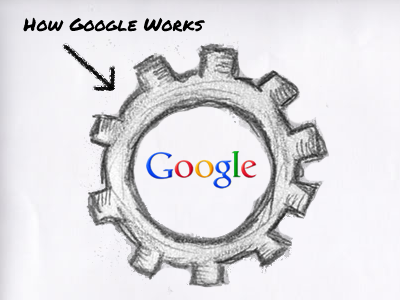
The first thing you need to understand is that Google is software. Human being don't monitor or edit Google's results. Where your website ranks is a result of a computer algorithm. In the key to getting better ranking for your website lies in your ability to help this computer algorithm decide you're the most relevant result for a particular search.
Google's most fundamental method of ranking websites is based on the number and quality of links other websites are making to your website. Google essentially assigns a score to each website domain name. When a domain name with a high score links to your website it gives your website a higher score. So the more high scoring links you get to your website the better your score will be. One of your goals and as a search engine marketer should be to get as many high quality (high scoring) links to your website as possible.
Google determines which search keywords are relevant to your website based on a number of factors. The most obvious factor is the content of your website. Within the content of your website Google gives a lot of weight to what you choose as your page title. Your page title is the information that appears in the browser tab when you visit a web page. If you want to get ranked for a specific keyword or phrase it's critical you include that keyword or phrase in your page. For example_ The title to this page is "How Google Works".
Your page title is also the portion of your website that will show up as a blue link in Google's search results. The tricky part about creating a good page title lies in the fact you need to include your targeted keywords in your title while making that page title seem like something people would want to click when displayed amongst other search results.
Another fundamental thing you need to understand about Google is it's preference to gather information in the form of text. Google cannot effectively read things or gather information from images. Image recognition technology does exist but it's still not cost effective and therefore little to no effort is made to determine a websites content based on it's images. Because Google gathers information in the form of text it's critical you create a text version of your content. Any text contained within an image or flash file will not have the ability to be read by Google. Therefore any content you create in an image or flash will provide no value toward getting your website ranked on Google.
By now you may be wondering how Google get's all this information. The term "crawling" references to the way Google gather's information about your website. Think of Google's computers as being kind of a mothership. This mothership sends all these little "robots" (also known as spiders) out onto the web. The robots follow links from one website to another gathering up all the information they run into along the way. As they gather the information they report it back to the mothership. The mothership then organizes and crunch this data to create an index. This index is referred to when you perform a search on the web. If your website is found to have a high score and relative content the index will be more likely to return your website a search results for a particular keyword search.
Google is every trying to improve the quality of their search results. So they're constantly tweaking the formula they use to determine which sites are relevant and which are not. The import things to remember from this article are to create plenty of keyword rich text on your website, create a highly relevant page title that includes your targeted keywords, and most importantly work hard to get as many high quality links back to your website. For more information about how to get on Google you can visit my previous article here.
